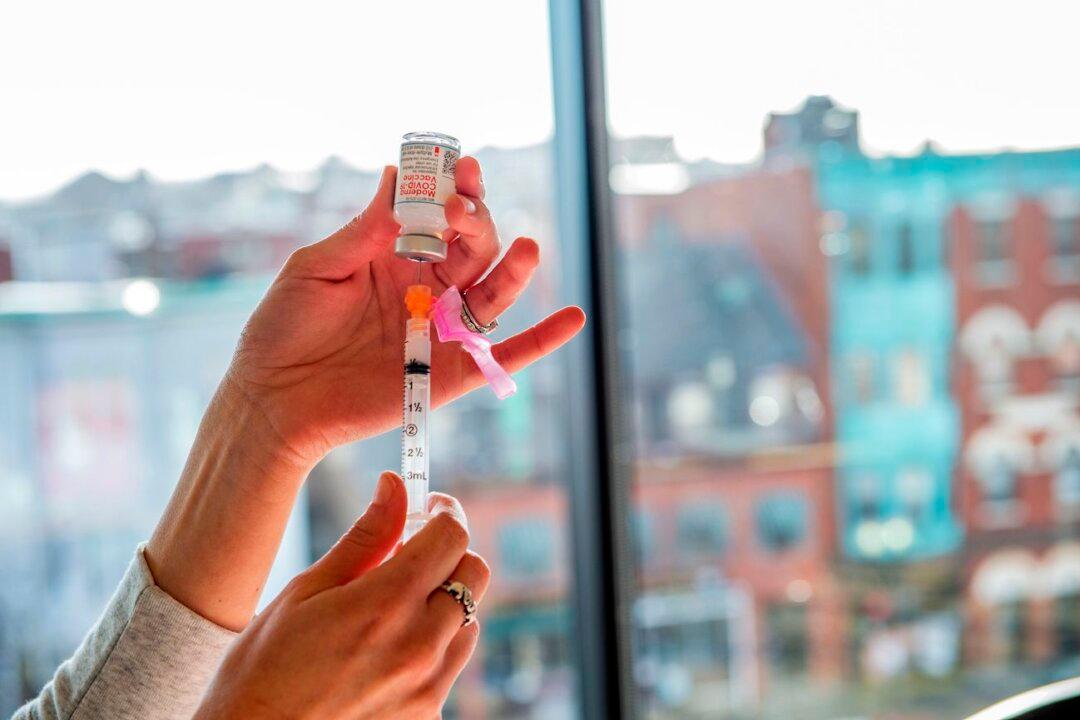A Centers for Disease Disease Control and Prevention (CDC) advisory panel on Feb. 4 unanimously recommended Moderna’s COVID-19 vaccine for all adults.
All 13 members of the Advisory Committee on Immunization Practices voted after hearing presentations from CDC officials on safety and efficacy data for the vaccine, which was approved by U.S. drug regulators on Jan. 31 a little over a year after receiving emergency clearance.





